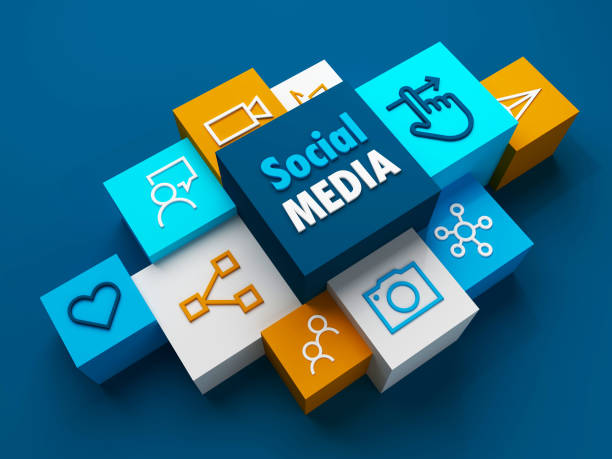The Future of Email Marketing: Predictions and Innovations








The Future of Email Marketing: Predictions and Innovations
The Future of Email Marketing: Predictions and Innovations
As the digital landscape continues to evolve, so too does the field of email marketing. With emerging technologies and shifting consumer expectations, businesses must stay ahead of the curve to maintain effective email marketing strategies. In this blog, we’ll explore the predictions and innovations that are set to shape the future of email marketing, focusing on key trends such as artificial intelligence, interactive content, and enhanced personalization.
1. The Rise of Artificial Intelligence
Artificial Intelligence (AI) is poised to transform email marketing by enabling more personalized and efficient campaigns.
A. Enhanced Personalization
- AI can analyze customer data to deliver highly personalized content and product recommendations, improving engagement and conversion rates. Marketers can utilize machine learning algorithms to segment their audience more effectively based on behavior, preferences, and demographics.
B. Automated Campaign Management
- AI-powered tools can automate various aspects of email marketing, from optimizing send times to creating dynamic content that adjusts based on user behavior. This automation saves time and enhances campaign effectiveness.
C. Predictive Analytics
- With predictive analytics, businesses can anticipate customer behavior and tailor their messaging accordingly. This allows for timely and relevant communications, increasing the likelihood of engagement and sales.
2. Interactive Content in Emails
Interactive content is becoming increasingly popular, providing recipients with a more engaging experience.
A. Gamification
- Incorporating elements of gamification, such as quizzes and polls, can encourage interaction and boost engagement rates. Interactive content not only captivates recipients but also provides valuable insights into customer preferences.
B. Embedded Multimedia
- Including videos, GIFs, and image carousels directly in emails allows for a richer storytelling experience. Brands can showcase their products or services in action, making the content more dynamic and appealing.
C. Surveys and Feedback Forms
- Incorporating feedback mechanisms directly within emails enables businesses to gather valuable insights from their audience, improving customer relationships and informing future marketing strategies.
3. Enhanced Personalization and Customer Experience
As consumers become accustomed to personalized experiences, email marketing will increasingly focus on tailored content.
A. Behavioral Targeting
- By tracking customer behavior across channels, businesses can create highly relevant email campaigns. For instance, sending follow-up emails based on previous purchases or browsing history can enhance the customer journey.
B. Dynamic Content
- Dynamic content allows for real-time customization of emails based on user data. This could include personalized product recommendations or tailored offers, creating a more relevant and engaging experience.
C. Lifecycle Marketing
- Businesses will adopt lifecycle marketing strategies, sending targeted emails based on where customers are in their buying journey. This includes nurturing leads with educational content and encouraging repeat purchases from loyal customers.
4. Privacy and Compliance Considerations
As concerns about data privacy grow, email marketers must prioritize compliance with regulations.
A. Transparency in Data Usage
- Marketers must clearly communicate how they collect and use customer data, fostering trust and ensuring compliance with regulations like GDPR and CCPA.
B. Opt-In and Opt-Out Options
- Providing clear opt-in and opt-out options empowers customers to control their communication preferences, aligning with the increasing emphasis on consumer privacy.
C. Secure Data Practices
- Implementing robust security measures to protect customer data is essential. Businesses must prioritize secure data storage and usage practices to maintain customer trust.
5. The Integration of Multichannel Marketing
Email marketing will increasingly be integrated with other channels to create a cohesive customer experience.
A. Cross-Channel Campaigns
- Combining email with social media, SMS, and other digital channels enables businesses to reach customers on their preferred platforms. This integration ensures consistent messaging and enhances brand visibility.
B. Unified Customer Profiles
- By creating unified customer profiles that aggregate data from various channels, businesses can gain a holistic view of their customers. This information can drive more effective segmentation and targeted campaigns.
C. Omnichannel Personalization
- As brands embrace omnichannel strategies, email marketing will play a crucial role in delivering personalized experiences across all touchpoints. This approach ensures that customers receive consistent and relevant messaging regardless of the channel.
Conclusion
The future of email marketing is bright, with numerous innovations and trends on the horizon. By embracing AI, incorporating interactive content, enhancing personalization, prioritizing privacy, and integrating with other marketing channels, businesses can adapt to the evolving landscape and create impactful email marketing campaigns.
Suggested Hashtags
- #EmailMarketing
- #FutureOfMarketing
- #DigitalMarketing
- #Personalization
- #AIInMarketing

